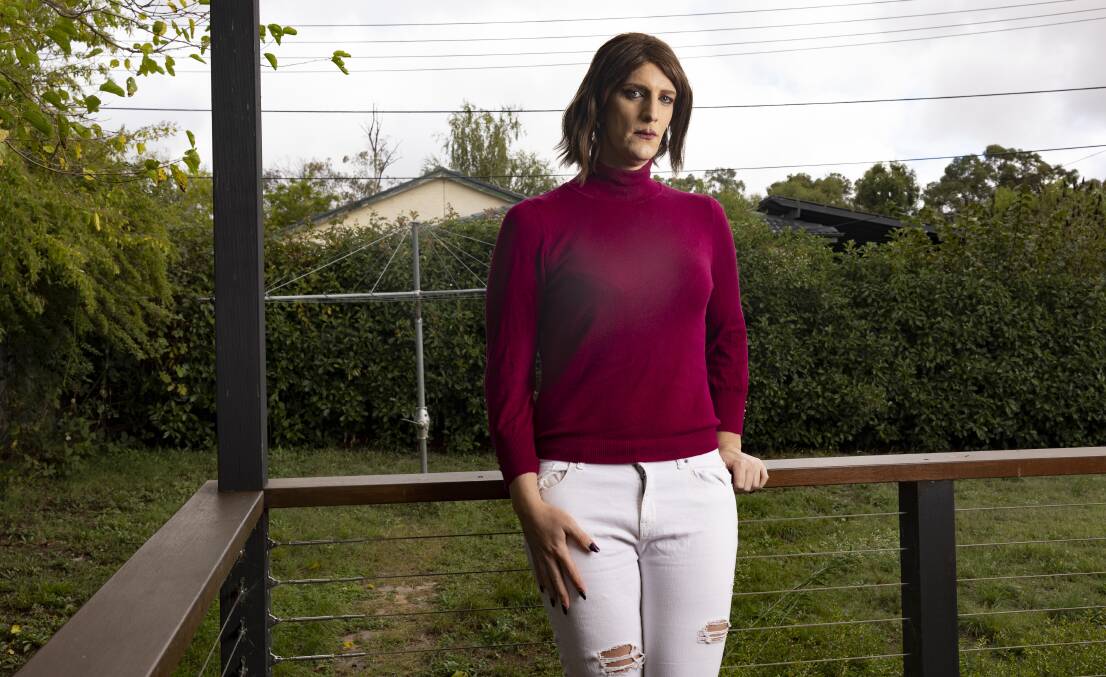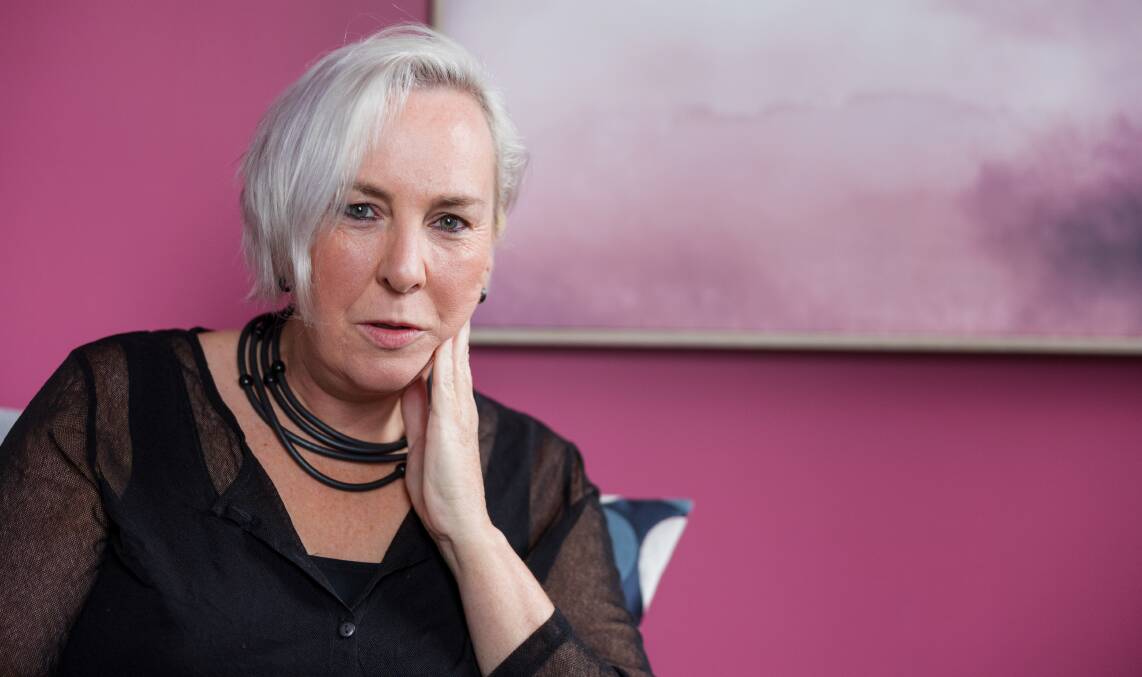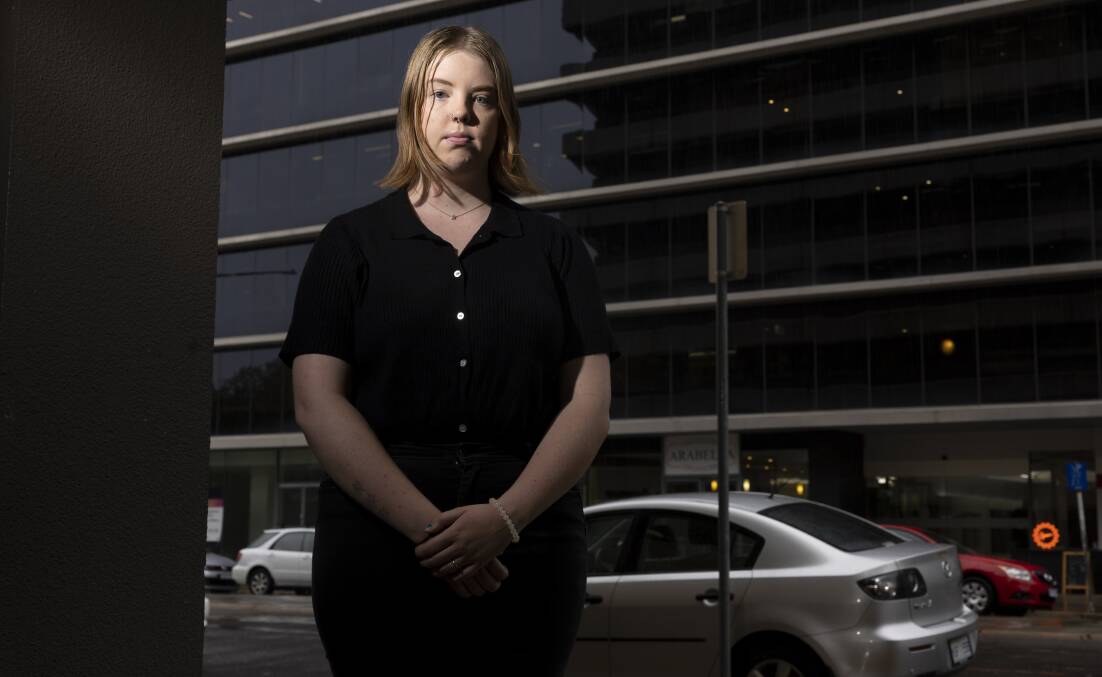The closure of a city-based GP practice has left transgender and intersex Canberrans with fewer healthcare options.
Hobart Place General Practice is closing on April 30. The head of the clinic, Dr Clara Tuck Meng Soo, said it was not financially viable to stay open.
The closure is a "wake-up call" for federal politicians, Royal Australian College of GPs (RACGP) president Dr Nicole Higgins said
"If our elected officials can let this happen in their own backyard Canberra, what's going to happen to the rest of the country?" she said.
Dr Higgins said the Medicare rebate had not kept up with inflation and called for system reform.
'I'm losing another safe zone'

Hobart Place patient and transgender woman Holly Hazlewood said the practice had a great reputation among Canberra's LGBTIQ+ community.
"This closure has come as a bit of a shock to many," she said.
"I was treated with sensitivity [there]. It was what you would expect, but unfortunately for a lot of transgender, diverse and non-binary people, and intersex people, it's not the norm."
While a lot of Canberrans struggle to find an affordable GP, Neesh, who asked we only use their first name, found it nearly impossible.
Neesh is intersex, meaning they were born with a combination of male and female sex characteristics. They have "mixed" genitalia and hormones, and couldn't find an understanding GP in north Canberra.
"Sometimes I was laughed at by the doctor themselves," they said.
That was until they found Hobart Place General Practice.
"The practice has an empathy which might not be available in other places I have tried," Neesh said.
"Going to Hobart GP is somewhere that is a safe zone for me. So I'm losing another safe zone in my life."
Healthcare options
Dr Soo also runs East Canberra General Practice in Majura Park. This clinic has the same bulk-billing policy and many doctors will move there.
The Interchange Health Co-op in Tuggeranong, also set up with help from Dr Soo, is trans- and gender diverse-friendly.
However, these clinics won't be accessible for some vulnerable Canberrans because of transport and demand, chief executive of LGBTIQ+ organisation Meridian Philippa Moss said.
Meridian has received a $280,000 grant from the ACT government to set up a trans and gender diverse-friendly clinic with one doctor and nurse.
But Ms Moss said: "We will not be able to meet the demand that is placed upon us."

General practice is a federal government responsibility. Australia's Health Minister Mark Butler said earlier this year he was not ruling out further increases to the Medicare rebate.
"The average gap fee for a standard GP consult is now more than the Medicare rebate itself, for the first time in the 40-year history of Medicare," he said in February.
However, Ms Moss said the ACT government needed to better support low-income Canberrans in the meantime.
"We need to recognise that Medicare is not going to increase anytime soon, and we need to have services for our most marginalised and vulnerable communities and the government need to fund those," she said.
ACT Minister for Health Rachel Stephen-Smith said the government worked closely with the community sector to deliver health services to LGBTIQ+ Canberrans, funding Meridian and the Canberra Sexual Health Centre.
The ACT government expects to release an update on an LGBTIQ+ scoping study next month.
Ms Hazlewood, who is an exercise physiologist, has provided allied professionals training on engaging with transgender and gender diverse people.
She said more health professionals needed to understand queer health issues.
"A lot of GPs don't have a lot of experience or any experience dealing with trans healthcare," she said.
"People's overall health and wellbeing can suffer as a result of just not feeling comfortable to be their authentic selves with their general practitioner."

Students protest closure
Another cohort impacted by the GP's closure are ANU students, who were offered bulk-billing or concessional rates.
The ANU campus health clinic does not have female doctors, student association president Ben Yates said.
"Hobart Place has always been really popular with students as an affordable and safe option," he said.
"It is for many students the default option. And for a lot of students ... from non-English speaking backgrounds, it's a safe choice because they trust it.
"Disabled students who might have to see doctors more often have also said they're really worried about how to find a doctor that might be further from campus."







